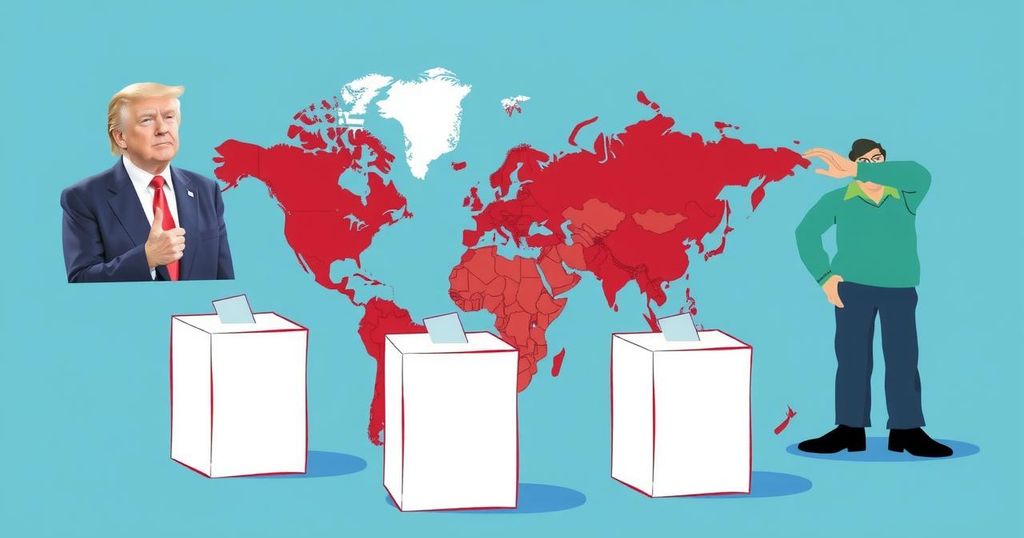Global Elections 2024: A Year of Political Turmoil and Change

The year 2024 was marked by a striking wave of voter dissatisfaction worldwide, culminating in the ousting of many incumbents across approximately 70 countries. Economic turmoil and social unrest spurred electorates to seek change, with notable political shifts in nations such as South Africa, India, and the UK. This cycle also witnessed a rise in right-wing populism, casting a shadow on democratic norms globally and raising questions about the future of governance as nations head towards 2025.
In the turbulent political landscape of 2024, public sentiment across many nations manifested predominantly in a resounding call for change, exemplified by widespread electoral upheaval. Approximately 70 countries, encompassing half the global population, conducted elections, leading to a significant derision of incumbent administrations, particularly in democracies such as India, the United States, and several European nations. The refrain of discontent among citizens was driven by economic instability exacerbated by various crises, most notably the ongoing repercussions of the COVID-19 pandemic and Russia’s invasion of Ukraine.
The distressing impact of inflation and social disruption spurred voters to oust long-standing ruling parties, as seen in South Africa, where the African National Congress faltered after three decades of governance. Similarly, countries like Senegal, India, and Japan witnessed dramatic political shifts, culminating in the replacement of long-standing leaders and parties. Conversely, the rise of right-wing populism was noted, with increased support for far-right parties across nations, indicating a complex interplay of political sentiments driving the global electoral narrative.
Western nations also experienced significant political transformations, as illustrated by elections in the United Kingdom, which resulted in a historic shift from the Conservatives to a Labour majority. Unfortunately, such movements have not universally translated to stability; accusations of electoral malfeasance, especially in Eastern European countries and nationalistic fervor in places like Hungary, signaled a troubling trajectory for democratic institutions. With 2025 on the horizon, voters appear poised to continue their dialogues around democratic satisfaction and efficacy amidst persistent challenges.
The year 2024 was characterized as a tumultuous period for global elections, with many nations facing substantial political instability and unrest. The aftermath of the COVID-19 pandemic has significantly influenced voter sentiment, leading to an electorate that is increasingly impatient with longstanding incumbents across varied political systems. Geopolitical tensions proliferated by conflicts such as the Ukraine war fuelled dissatisfaction among citizens, compounded by economic difficulties and social disruptions that left many individuals feeling disenfranchised. Consequently, this electoral cycle has been marked by a rejection of traditional political elites, as well as the notable ascendance of extremist parties, raising concerns about the future of democracy worldwide.
In conclusion, the electoral dynamics of 2024 illustrate a pivotal moment for democracies around the globe, whereby widespread dissatisfaction with incumbents has become a common refrain heralding significant political change. The interplay between economic distress, social upheaval, and rising populist sentiments underscores a shifting landscape where traditional parties struggle to maintain influence. As nations head into 2025, the imperative for effective governance and responsive political structures is more critical than ever, particularly amidst increased scrutiny around the legitimacy and functionality of democracies.
Original Source: www.news4jax.com







